Written By Ali Azhar, July 26, 2023
Use this comprehensive guide of the top data quality tools and software to learn more about their key features, pricing and more.
The cornerstone of any data strategy or data-driven system is high-quality data. As organizations realize the importance of data, there is an increased emphasis on improving and maintaining data quality. However, the vast volume and increasing complexity of data make it challenging to monitor and improve data quality on a continuous basis.
SEE: Get big data certification training with this bundle from TechRepublic Academy.
Using data quality tools can make it easier and more efficient to monitor and improve data quality. There are several data quality tools on the market, so it can be a daunting task to find the right tool for your needs. This guide covers a variety of the top options in the data quality tool market, ranging from free and open-source solutions to more heavy-duty enterprise software suites.
Jump to:
- Top data quality tools comparison
- Frequently asked questions about data quality
- Key features of data quality tools
- Benefits of data quality software
- How do I choose the best data quality tool for my business?
- Review methodology
Top data quality tools comparison
Data is an extremely valuable asset that can have a major impact on business outcomes. This is why it is important to choose the right data quality tools and technology and learn how to best leverage the tools to obtain maximum value from data.
| Software | Data profiling | Data cleansing | Data parsing | Customizable alerts | Data matching |
|---|---|---|---|---|---|
| Data Ladder | Yes | Yes | Yes | Yes | Limited |
| OpenRefine | Yes | Limited | Yes | Limited | Yes |
| Talend | Yes | Yes | Yes | Yes | Yes |
| Ataccama | Yes | Yes | Yes | Yes | Yes |
| Dataedo | Yes | Limited | Yes | Limited | Yes |
| Precisely | Yes | Yes | Yes | Yes | Yes |
| Informatica | Yes | Yes | Yes | Yes | Yes |
Data Ladder: Best for large datasets
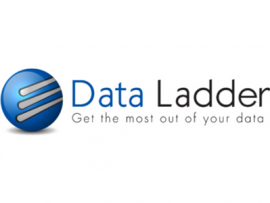
Data Ladder is a brand that is well-known for its end-to-end data quality solutions. The company offers DataMatch Enterprise (DME) software, which can be used for data cleansing, data profiling and deduplication. The data profiling tools offered by Data Ladder can be used to develop complete profile analyses across different datasets.
Data Ladder offers prosperity algorithms for data matching and sophisticated data recognition features. Another core feature is its ability to connect, prepare and integrate data from disparate data sources, even for data like physical mailing addresses.
Although Data Ladder’s data quality solutions are user-friendly and require minimal training, some advanced features can be tricky to use. There have been some reports of a lack of documentation for the most advanced features of Data Ladder.
Pricing
- Customized pricing.
Features
- Data import from a variety of sources, including local files, cloud storage, APIs and relational databases.
- Powerful data cleansing and data matching tools.
- A 360-degree view of data through industry-leading data profiling tools.
- Data deduplication tools that automate the process of identifying and removing duplicate data records.
Pros
- Fast, even with large datasets.
- User-friendly interface.
- Live training sessions.
Cons
- Lack of training documentation on some advanced tools.
- Reports of minor bugs in the data-matching algorithm.
SEE: For more information, read the full Data Ladder review.
OpenRefine: Best free and open-source solution
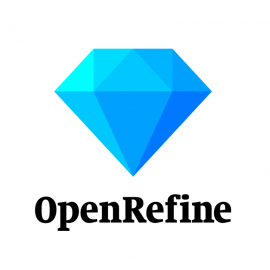
An important aspect of data quality is keeping the data clean and formatted correctly. OpenRefine, previously known as Google Refine, is an open-source data quality tool that can work with datasets from multiple sources, cleaning and transforming data from one format to another.
OpenRefine is a Java-based tool that allows users to work on data directly from their machines, which supports additional data privacy. However, they also have the option of using OpenRefine web services for online data quality operations.
A downside to OpenRefine is that it has a steep learning curve; several users have reported issues with its initial configuration and implementation.
Pricing
- Free and open-source tool.
Features
- Powerful heuristics that allow users to fix data inconsistencies by clustering or merging similar data values.
- Data reconciliation to match the dataset to external databases.
- Faceting feature to drill through large datasets as well as the ability to apply various filters to the dataset.
Pros
- Free and open source.
- Quick file conversion capability.
- Efficient data manipulation tools.
Cons
- No automatic updates.
- Limited data integration.
Talend: Best for scalability
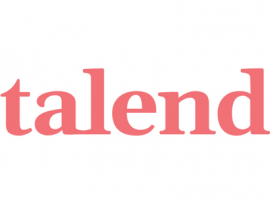
With Talend’s data quality solutions, users can quickly identify issues and spot data anomalies using statistics and graphical representation. Talend also offers various tools for data standardization, data cleaning and data profiling.
One of the core features of Talend’s data quality solutions is the ability to profile information instantly and mask data in real time. The tool also offers recommendations generated by proprietary machine learning algorithms to improve and maintain data quality. The self-service interface is ideal for technical and business users.
There is also a Talend Trust Score system to evaluate and compare the quality of datasets, offering actionable insights to improve the quality of data. As far as potential cons go, some users have reported speed issues with Talend, noting that it can take longer to complete tasks compared to competitors’ similar products.
Pricing
- Customized pricing.
Features
- Real-time data profiling and data masking.
- Ability to perform detailed data profiling, including identification of data patterns and dependencies.
- Variety of prebuilt data quality rules for common scenarios.
- Advanced algorithms for data matching and record linking.
Pros
- Highly scalable.
- Deep integration with Talend products.
- Outstanding data profiling capabilities.
Cons
- Steep learning curve for advanced tools.
- Not as fast as some competitors.
- Requires extensive hardware resources for large projects.
SEE: Explore our in-depth review of Talend Open Studio.
Ataccama: Best for AI capabilities
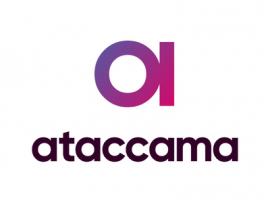
Ataccama’s flagship data quality product is named Ataccama ONE. It is an open-source platform that integrates seamlessly with other data management tools and offers multi-domain functionality. There is AI functionality for quick results and recommendations that help users understand what tasks are required to improve data quality.
Data quality rules across Ataccama tools can be customized to meet the requirements of different types of users. Ataccama ONE is geared toward data profiling with a variety of useful features, including advanced data profiling metrics and foreign key analysis. Ataccama DQ Analyzer can be used to simplify data profiling tasks and make them more efficient.
Customer reviews have pointed to the difficulty of implementing Ataccama ONE, so be prepared for a steep learning curve. However, once the application is configured, it should be fairly straightforward to use.
Pricing
- Customized pricing.
Features
- Ability to create personalized dashboards and custom widgets.
- Variety of built-in data quality rules and standards.
- Data quality analytics, including different types of metrics, scorecards and KPIs.
- Ability to deploy on cloud, on-premises or in a hybrid arrangement.
Pros
- Powerful AI capabilities.
- Flexible deployment options.
- Excellent integration capabilities for end-to-end lineage.
Cons
- Overly complex for simple or small-scale projects.
- Steep learning curve for full utilization.
SEE: Here’s how Ataccama ONE compares to Informatica Data Quality.
Dataedo: Best for metadata management
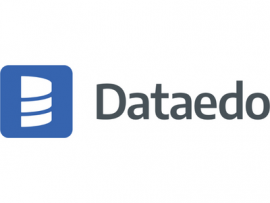
Data quality tools offered by Dataedo can help users understand and correct flaws in data across the entire data lifecycle. The top features of Dataedo include the ability to gather feedback on data quality from users and an evaluation tool for data trustworthiness.
The data lineage diagrams offered by Dataedo provide context through data mapping, while user feedback on data quality is stored in a data catalog.
Organizations can provide data log access to users so they can understand how data works, how to minimize margin errors and how to post feedback. There are also features that support data democratization efforts, such as a business glossary.
Pricing
- Customized pricing.
Features
- Variety of tools for the identification of data quality issues that can be used to gather feedback on data quality from other data users.
- Discover and document data relationships with entity relationship diagrams.
- Collect and scan metadata from multiple sources to automatically build a data dictionary.
- FK Relationship feature to minimize data inconsistencies and errors.
Pros
- Visual data relationship mapping.
- Powerful tools to capture and manage metadata.
- User-friendly and intuitive interface.
Cons
- Limited data governance tools.
- Lacking in data analysis.
Precisely: Best for data enrichment
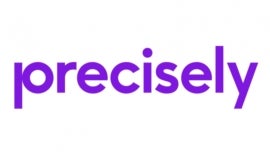
Data quality solutions offered by Precisely include Trillium Quality for Big Data, Trillium DQ and Trillium Cloud. There are also specialized data quality suites offered by Precisely Trillium for use with Microsoft Dynamics and SAP. The strength of Precisely Trillium is in the various specialized functions it offers and the strong customer support it provides.
The downside of Precisely Trillium is that it can be difficult to use. The complex installation procedures and challenging user interface are often customers’ top complaints with Precisely software. Tech-savvy users might not find Precisely Trillium challenging to use; however, other users will most likely need structured training.
Pricing
- Customized pricing.
Features
- Smart data quality management that leverages AI tools and automation features to deliver instant results.
- High-performance data processing for large volumes of data. Faster data processing times help maximize efficiency for data-intensive organizations.
Pros
- Top-tier customer support.
- Ability to handle large volumes of data.
- Specialized suites for use with different applications.
Cons
- Steep learning curve.
- Complex installation and setup.
SEE: Read how Precisely Trillium Quality compares to Ataccama ONE.
Informatica: Best for data profiling
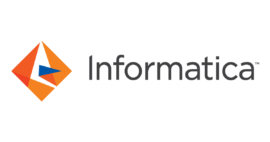
There are several data quality products offered by Informatica, including Informatica Big Data Quality and Informatica Data Quality (IDQ). One of the top data quality features that Informatica solutions offer is metadata-driven machine learning to identify data errors and inconsistencies. Data stewards and other data users can automate a wide range of data quality tasks and set up reminders.
When it comes to Informatica solutions, there is room for improvement in ease of use. Several users have reported that it is challenging to create rules and dashboards in Informatica data quality solutions. There is also a lack of integration with other technologies, although Informatica continues to address this issue by offering new integration releases over time.
Pricing
- Customized pricing.
Features
- Prebuilt rules and accelerators to automate data quality processes.
- Variety of data monitoring tools, including data iterative analysis to detect and identify data quality issues.
- Role-based capabilities to empower a variety of business users who can play a key role in monitoring and improving data quality.
- AI and machine learning tools to help minimize errors.
Pros
- Variety of AI and machine learning tools.
- In-depth data profiling and analysis.
- Ability to scale up to handle large volumes of data.
Cons
- Challenging to create rules.
- Integration complexity.

Leave a Reply